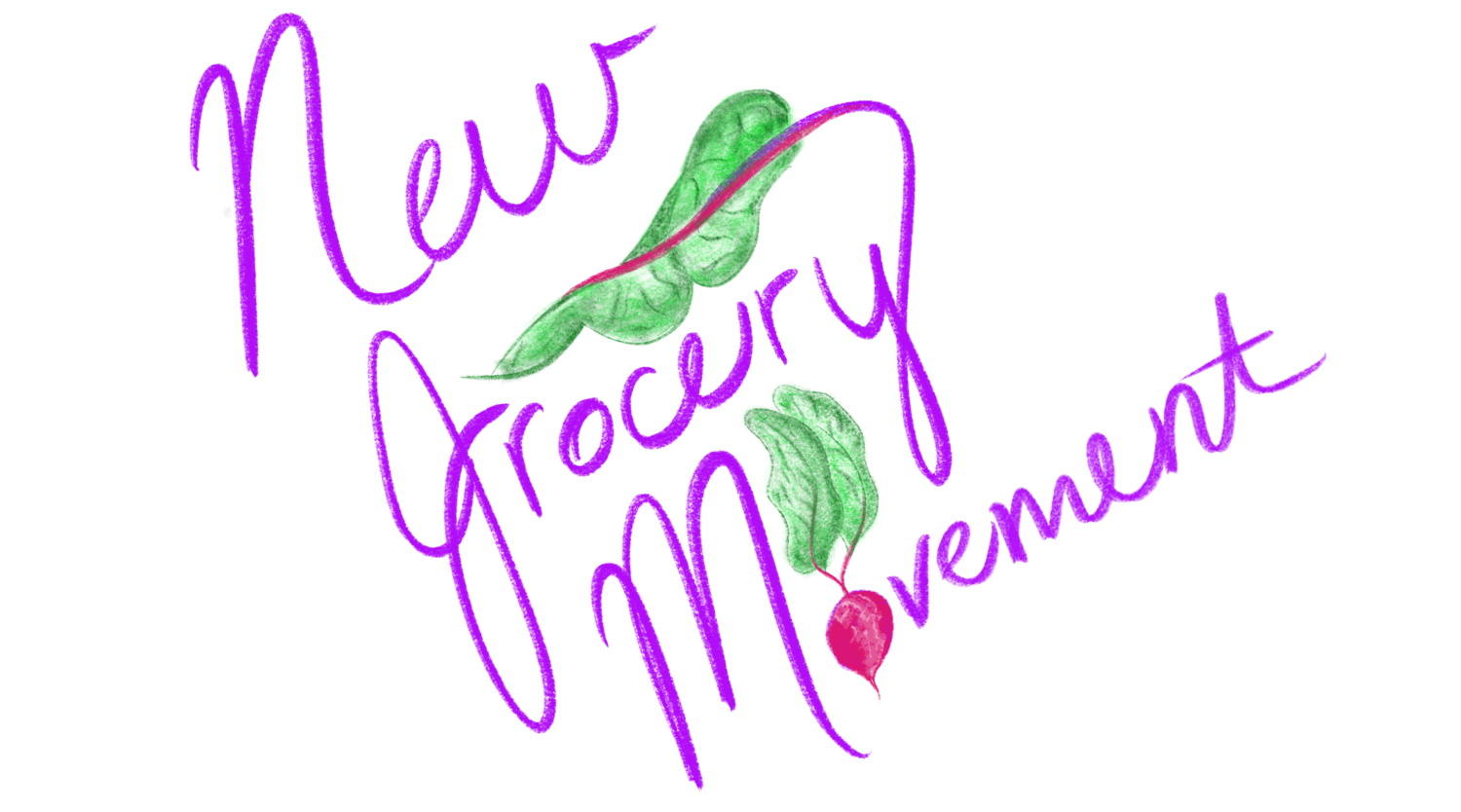NGM’s Statement on a Free Palestine
The team at NGM feels deeply devastated by the humanitarian catastrophe in Palestine over the past month and a half. It feels impossible to continue our mission of food justice and food sovereignty at home when we are witness to the ethnic cleansing and genocide of the Palestinian people.
Food justice and food sovereignty require systems change solutions to restructure our food systems around equity, self-determination, agency and community. It is inadequate to identify the problems in the food system, such as food insecurity, inequality, food waste, climate change, etc., without recognizing their root causes. Careful study points to colonization, capitalism, white supremacy and the hetero-patriarchy as the systemic problems driving a lack of justice, sovereignty and access in not only our food systems, but all systems.
This knowledge is built upon the tireless work of those before us, including social justice advocates, queer and feminist researchers, and primarily, BIPOC community members that have lived and unearthed these complex and harmful societal forces. Knowing these systemic problems means understanding their interconnected nature - no one is free until we all are. Standing against colonization and white supremacy here means calling it out everywhere. Collective liberation requires collective voices.
The mass displacement and violence experienced by the Palestinian people has had significant impacts on their access to food and land. Disruption and destruction of local food systems lead to food insecurity and dependence on external ecosystems for food. Decades of conflict, suffering and displacement have resulted in significant disruptions, and the urgency of this disconnection to local food systems has significantly intensified through the more recent context of genocide. With the destruction of local food systems and the forcible separation of Palestinians from their land, we see the loss of Palestinian agriculture to support their communities.
In addition, the blockade in Gaza prevents life-saving resources from entering, decreases access to proper nourishment and sustains prolonged hunger, which will impact future generations. Cultural connections to food are severed through violence as people are forced to focus on meeting basic nutrition needs to survive rather than cultivating meaningful food practices with their communities and families. The incredible devastation of Palestinian food systems will be felt for generations to come.
The detachment of people from their food systems is a strategy of colonization; one which we have witnessed in its weaponization by the Canadian state against the Indigenous people of this land, who have also suffered through genocide and who continue to fight against ethnic cleansing. This is not a new story. Food is power; land is power. To meaningfully move towards a food system that centers justice and sovereignty, NGM recognizes that decolonization must be whole-heartedly supported, standing strong in our call for the return of stolen land to Indigenous peoples. The Land Back movement on Turtle Island shares commonalities with Palestinian Freedom.
With this in mind, NGM stands with others around the world that are demanding an end to the violence in Palestine. NGM adds our voice to calls for an immediate ceasefire to prevent the ongoing genocide of the Palestinian people, an end to the siege of Gaza, and an end to the occupation and colonization of Palestine. We also draw attention to the rising rates of Islamophobia and antisemitism, forms of hate that are being exploited through tragedy, and validate the fear this causes. We unequivocally stand against all forms of discrimination and oppression, joining in solidarity and empathy with those who feel connected to the trauma or who are part of communities directly impacted by this hate. Further hate, violence and oppression will never solve this crisis.
NGM acknowledges that we are sharing this statement from a place of safety and where free speech is protected. We are advocating for land-based rights and freedoms while living as settlers on occupied land; however, we understand that Indigenous and Palestinian sovereignty are explicitly linked to reconciliation and food justice for these communities. We are a team of diverse young women who face our own intersectional realities. We do not take our platform for granted and have spent considerable time and discussion determining how we can best add value to this conversation.
We also recognize that focusing on food in this conversation is a privilege - many people are focused on surviving right now. We hope not to distract from the urgency of human rights at this moment, but to use what we know best - food - as a lens or entry point for people to better understand the context and help position themselves in the movement for collective liberation.
NGM also wants to acknowledge our position in this conversation as an ally. Our mission and expertise are not rooted in Palestinian liberation. As such, we offer this statement of support and the following resources, while making it clear that the majority of space should be held by Palestinian and human rights leaders to guide the way forward. We are sending love to the people of Palestine and to all those joining together for our collective liberation.
Resources for Learning and Action
NGM has compiled some resources for those that want to take action and learn more. If you have any good resources to share, please email info@newgrocerymovement.com so we can add them to the list.
List of Canadian Actions for Palestinian Solidarity
Seeding Sovereignty Post on Food Justice in Palestine
Intersectional Environmentalist Toolkit on Environmental Justice in Palestine
Seeding Sovereignty Post on Food Insecurity as a Weapon
Protect Palestine Guide
5 Broken Cameras, a film by a Palestinian farmer
